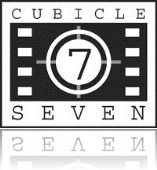For those just joining us, you might want to jump back a few pages, and take a look at the previous parts of this review, looking at the setting information, and character creation. Now, if you’re all caught up, we’ll take a look at how the system works.
Carrying on from character creation, you will remember that each character has a list of eight traits, spit into mental and physical, and a whole bunch of skills and specialisations. All these numbers are used to work out the likelihood of passing or failing to perform anything other than simple actions. To give you an example, I’m going back to my still unnamed spoilt brat gambler kid I made earlier. Although his primary focus is his gambling hobby, I picked out a couple of extra skills that would be useful for him. Within the ‘Deception’ skill group, gambling was an easy choice to turn into a specialty, but right there next to it was sleight of hand. Had to be done really didn’t it? In a situation where the character needed to palm a card and replace it to give himself even a chance of staying at the table, he would need to make a skill roll. Difficulty would be set by the GM and then the dice would be rolled.
As this is a test of manual dexterity, the base statistic is easy to determine, but the game encourages creativity in this regard, with no solid tie-in between skill and trait, instead allowing the players and GM the chance to play to their strengths, wherever able. In this case it’s fairly straightforward, but there could be an argument made to use Charisma instead to distract the other gamblers, but that might be a stretch. So, we take the trait number, and grab that many six sided dice; in my case a paltry two. We then take a look at the score I have in the skill. Deception comes in at three points, which would be correct for any specialisation that falls under it, unless you’ve whacked a few specialisation points in it as well. I did that very thing and raised my sleight of hand to lofty height of four. This means I have no ‘Gimikku’ (gained if a specialisation hits five points) to give me any extra bonuses to this roll, so lets just take a shot at it. I roll both d6, and add the skill rank to the total.
Here’s where it gets interesting though, and reminds why I love games where the system becomes more than just a means of randomising success, and instead adds to the feel of the setting. Not only does it throw in my favourite mechanic – that of the ‘exploding dice’ – but it adds its own touch. In Japanese, the number four is ‘Shi’, which also means, quite literally, death. This means that any roll of a four on a d6 is not included in the final score. Might seem harsh, but what with exploding dice, I think it should balance out with no real problems. It also gave me an idea for a particularly sinister house rule.
Imagine a skill check that is almost too important to fail, but fail it does. All because of the player staring down at the dreaded number four on his freshly rolled dice. If the four was included, they would have just scraped by. If only there was something to be done. As the GM, you offer to put that malevolent die back into contention, on the understanding that Death will notice, and seek recompense. Maybe not straight away, and maybe not to anyone immediately connected to the PC, but Shi will take its due…
You must also take into account the degree of any success or failure based on how far away the result was from the target number, but this is simple maths and should not impede game play at any time. All this sounds great so far, but as mentioned in the last review, there are five different ‘Gimikku’ and I think that until the players get a few games under their collective belts, this could slow things down without a cheat sheet for each player. A minor quibble at most though, as I think the system stands up very well, both in how it allows players a certain freedom to play to their strengths, and how well it helps with immersing the players into a highly superstitious game world.
Combat works much the same as regular skill checks, although a lot more of them will be opposed checks, which work exactly as you would imagine them to. One addition I do like though is the simplicity of the combat manoeuvres that are available. In either close combat or at range, you can choose to sacrifice accuracy for damage or vice versa. Both are simple to work out, and mean that players can once again adapt to suit the strengths and weaknesses of their characters. Add to this a bunch of situational modifiers that should be fairly standard to most people who’ve played an RPG with a tactical combat system, and you’re done.
So far, I have to say that I’m loving what I’ve been reading. the system seems to flow quickly while being easily adaptable to the fluid situations one would expect to encounter, and even a few one might not. Number of dice plus modifier might seem a less than simple way to calculate a chance of success, but having played original Deadlands for several years, I can attest to how quickly it becomes second nature. There’s just one bit left of this review, and if I get the chance I will treat you all to the GM’s section by the end of the week.
Kuro is available from:

![kuro-cover-500-233x300[1] kuro-cover-500-233x300[1]](https://www.gmsmagazine.com/wp-content/uploads/kuro-cover-500-233x3001_thumb.jpg)
